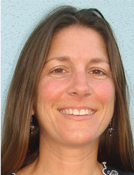

By Cheryl Engels, OD, MBA, senior consultant of The Power Practice and director of Practice Made Perfect
Of course you can identify dry eye patients from your own patient base, but what about the rest of those dry eye sufferers out there who have never heard of your office? Where will these patients come from? There are three sources for patients just waiting to fill your schedule.
Rheumatologists are probably your most concentrated source of referrals because of the nature of their patients’ conditions. For years these doctors have been sitting with patients and hearing their complaints about dry eyes. Until now their response has been, “I know. Have you tried some over-the-counter drops? That is pretty much all you can do.” Let these doctors know you can provide a better solution. As we have been hearing how meibomian gland dysfunction is much more prevalent than we thought, many ODs are having success with meibomian gland expression in-office. Rheumatologists want to give their patients the best treatment available,
so make it easy for them to refer patients to you. Design a brochure that talks about your expertise in this area and leave a stack of them with the rheumatologist to pass along to their patients. Also design a simple referral form, and be sure to fill out the rheumatology office information on it so the staff or doctor only needs to add the patient’s name, reason for referral and best way to contact this patient.
As you are gaining referrals from several rheumatologists in your area, be sure to double dip. You can get an even greater
number of patients by contacting your local support groups for autoimmune patients. Depending on the population density in your area, you may find there are several condition-specific groups like a Sjogrens group, a rheumatoid arthritis group and others. In less-populated areas, there may be one group that meets for all autoimmune conditions. Look online to find a way to contact the group organizer and say you would like to speak to the group about the evolutions in inflammatory dry eye treatment and how you can treat these patients. As you prepare your brief talk, remember that these patients are fairly well educated about their conditions. Most have spent hours researching their conditions and possible methods of relief, so speak at a higher level about the research and treatments. Once you give relief to one dry eye patient in the group, the word will spread very quickly.
With the increase in demand for surgical eye care services for baby boomers, increasingly pressed ophthalmologists, in my area of Florida, at least, are kicking dry eye back to optometry. The opportunity is just waiting for you to take it. Corneal specialists and general ophthalmologists in your area likely have a pool of patients for you. Many of them are not taking time to fit scleral lenses, so there is an opportunity to dive into that area, as well.
Knock on the doors of rheumatologists, support groups and ophthalmologists. Open up your appointment schedules, and welcome in these patients.



